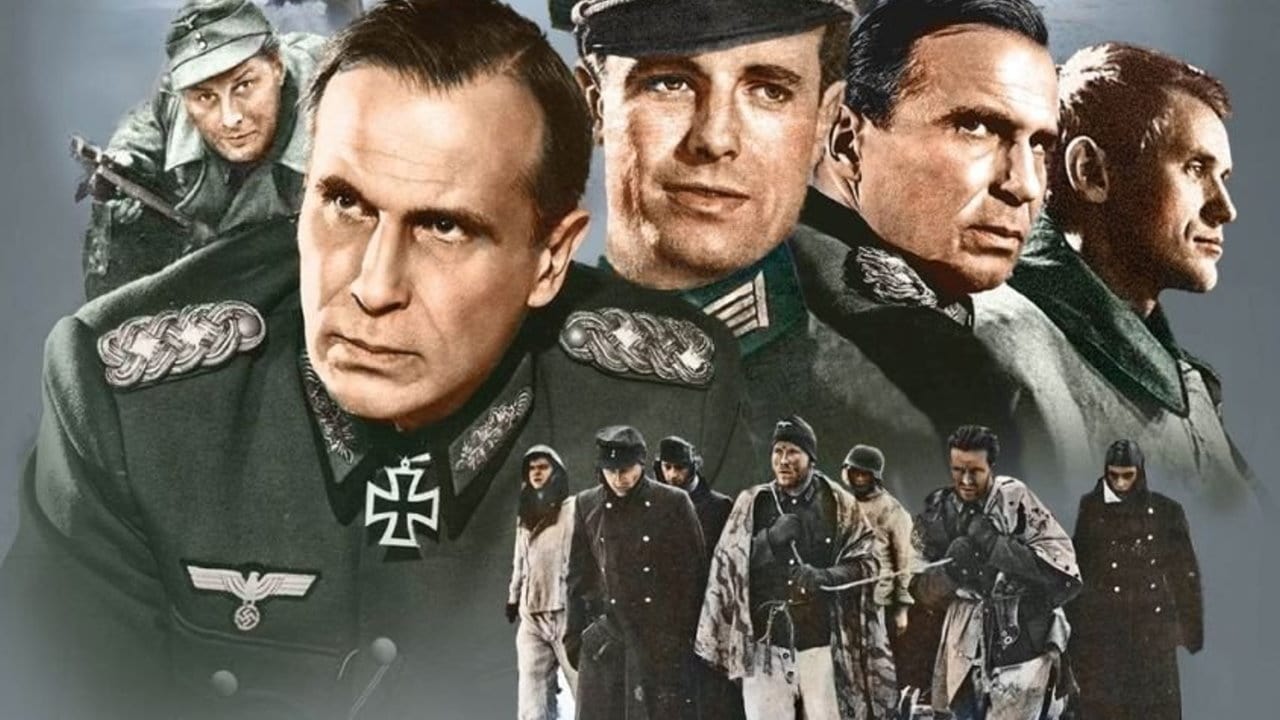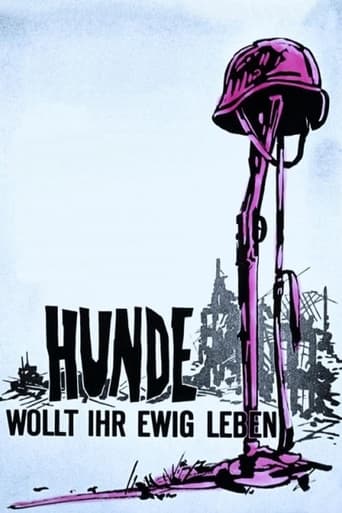

"Hunde, wollt ihr ewig leben" or "Dogs, Do You Want to Live Forever?" or just "Stalingrad" is a West German black-and-white novel-based film from 1959 written and directed by Frank Wisbar (with some more writers). And just like so so many other German films from that era, it is an attempt at coming to terms with what happened in the country during the years of World War II. I personally must say, when it comes to this genre, I rather watch these films that elaborate on the motivations and the political context instead of going deep into the subject of military units and endeavors. But this is what this black-and-white film here does. You must have a really deep interest in old German film, in order to recognize some of the cast members here, even if they have (had) prolific careers and even appeared in a couple pretty successful Hollywood films. But back to this on here: my dislike of it in terms of contents is purely subjective as I already described. But I also have to criticize that I found none of the main characters really interesting or relatable and that's why I did not really feel for or care about them. Consequently, my overall verdict is thumbs-down. This film offers nothing that most of the other German war-themed films from the 1950s and 1960s don't.
... View MoreMade soon after the few survivors of Stalingrad returned home, wounds were still fresh & deep when this film was released just 14 years after the unconditional surrender. This film is important because was one of the first German post-war films to critically examine some very difficult & painful areas for the Germans. Interestingly we never see Hitler's face - I'm sure there are a few reasons for that. The film addresses the lie that the Allies of Germany, Rumania (and Italy et al for that matter) were poor troops. They were good soldiers but were indeed poorly equipped & supported.There have been criticisms for mis-matching of stock footage, incorrect tanks (T-34/86 instead of T-34/76) & subtitling. Most of this is minor, for example mistaking "Oberst-Leutenant" (Lt-Col) for "Oberleutenant" (Snr Lt) and mis-spelling General Hoth's name (as "Hooth"). The translating of "break-out" as "break ranks" is trivial. The actual footage spliced in may be of different battles but given the time & place this was made it seems a reasonable thing to do. In the end, getting squashed by a Russian tank or disintegrated by high explosive shells is much the same experience wherever you do it.No, 14 years was not long enough for a deep introspection but this film made a solid start down that path. Well worth seeing. Look out for the exceedingly & implausibly beautiful Sonja Ziemann.
... View MoreA lot of times I read here by IMBD, that there are only three war-films on the eastern front (Cross of Iron, Stalingrad and Enemy at gates). There are a lot of other european films with this topic and for me this one is the best of all. There are war films better than this, but no one at the eastern front.
... View MoreThis black&white picture deals mainly with the german armies on the eastern front- starting with all the glamour of third reich parades and the comradeship even in russia´s tough winters - then finally collapsing into Stalingrad, the major breakdown of all hopes for a german victory...Some of the acting from todays point of view seems melodramatic and the perspective towards General Paulus and other officers in high ranks is a lot different from how historians of the nineties would describe them. The movie gives an impression of a group of men, who keep fighting though they have already lost. I like the movie, still thirteen years was probably too short to get the point really...
... View More